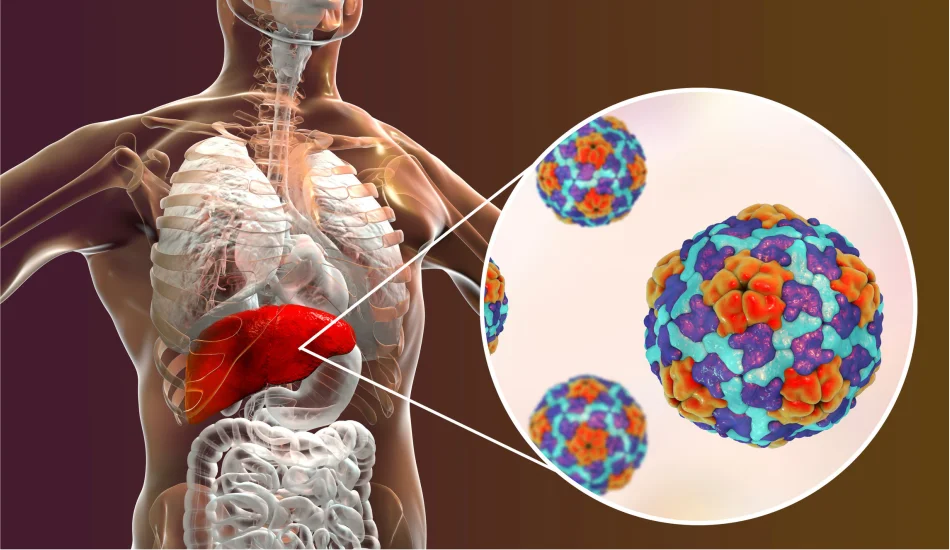
What is Hepatitis
Hepatitis is a medical issue which is caused by liver inflammation. This vital organ, crucial for a variety of bodily functions is susceptible to inflammation due to different factors, such as the presence of autoimmune diseases, viral infections such as drinking alcohol, toxins and certain medicines. The severity of hepatitis may vary from a mild unnoticed illness to a serious life-threatening illness. Understanding the signs, causes and hepatitis types is essential for a successful prevention prompt diagnosis and proper treatment.
Signs and symptoms of Hepatitis
Hepatitis symptoms can vary widely based on the nature and severity of the illness. In many instances, particularly in the beginning stages, patients are not symptomatic, making it difficult to diagnose without a regular screening. The most common signs of hepatitis are constant fatigue, the appearance of yellowing on the eyes and skin (jaundice) and abdominal pain as well as dark urine, pale stool nausea, vomiting decreased appetite along with fever and joint discomfort. These signs could be a sign of liver dysfunction and inflammation that require medical evaluation to ensure precise diagnose and therapy.
The causes of Hepatitis
Hepatitis causes are various as viral infections are the most prevalent. Hepatitis caused by viral hepatitis can be caused by various viruses, and each leads to a particular kind of liver disease. Hepatitis A is caused by hepatitis A virus (HAV) is normally spread through food items that are contaminated and water. This type of hepatitis is typically acute and does not result in chronic liver diseases. Hepatitis B is due to the hepatitis B virus (HBV) is transmitted by contact with infectious body fluids like semen, blood, and vaginal fluids. It is either chronic or acute and chronic hepatitis B being a risk of serious liver problems, such as liver cancer and cirrhosis.
Different types of Viral Hepatitis
- Hepatitis A (HAV) :-Hepatitis A is transmitted by ingestion of food items contaminated with bacteria or drinking water. The symptoms of hepatitis A are fatigue, fever and loss of appetite. Other symptoms include nausea abdominal pain, vomiting dark urine, pale stool and jaundice. Hepatitis A prevention involves vaccination and good hygiene practices as well as avoiding foods and drinking water. There isn’t a specific treatment for hepatitis A. However, support is offered to alleviate symptoms. the majority of patients recover completely, without permanent liver damage.
- Hepatitis B (HBV) :-Hepatitis B is spread through contact with body fluids that are infectious and may be chronic or acute. The symptoms of hepatitis B are fatigue, fever and loss of appetite. Other symptoms include nausea and vomiting abdomen pains, black urine jaundice, pale stool, and joint discomfort. To prevent the spread of Hepatitis B includes vaccination, observing safe sexual behavior avoid sharing needles as well as screening women who are pregnant. Hepatitis B in the acute phase does not need treatment, but chronic hepatitis can be treated with antiviral medication to limit the damage to the liver and avoid complications.
- Hepatitis C (HCV) :-Hepatitis C is transmitted by blood-to-blood contact. It may result in persistent liver diseases. The symptoms of hepatitis C are fatigue and hunger, fever nausea, vomiting, abdominal pain and dark urine, light stool, jaundice along with joint pain. There is no vaccine available for Hepatitis C However, the best way to prevent it is not sharing needles, using safe sex and examining the blood products. Chronic hepatitis C can be treated by antiviral drugs which can treat the infection in the majority of instances.
- Hepatitis D (HDV) :-Hepatitis D occurs in those already affected by Hepatitis B and is spread through contact with bodily fluids. The symptoms are like those of hepatitis B however they can be more serious. The prevention involves hepatitis B vaccination and avoiding sharing needles and having a safe sex. Treatment is focused on managing the hepatitis B because there isn’t a specific treatment for the hepatitis D virus.
- Hepatitis E (HEV) :-Hepatitis E is usually transmitted through the ingestion of contaminated water or food and is more frequent in areas that have inadequate sanitation. Symptoms include fatigue, fever as well as a loss of appetite. nausea and abdominal pain, vomiting light urine, pale stool and jaundice. Prevention requires the use of good hygiene practices and drinking water that is safe for consumption and the proper use of sanitation. There isn’t any particular treatment for Hepatitis E Supportive treatment is offered to ease symptoms. Most people are completely recovered.
Non-Viral The causes of Hepatitis
Hepatitis that is not caused by viruses can be caused by drinking excessively and can cause the condition known as alcoholic hepatitis. It is that is characterized by liver inflammation and abrasion. Autoimmune hepatitis is when the immune system of the body accidentally targets liver cells leading to inflammation. This kind of hepatitis requires immunosuppressive treatment to treat the condition. Hepatitis that is toxic results from being exposed to toxic substances, such as certain drugs, chemicals and herbal supplements that cause damage to the liver. Metabolic diseases that affect the liver can cause hepatitis as well.
Prevention and Management of Hepatitis
Every type of hepatitis comes with distinctive characteristics, ways of transmission, as well as treatments. To prevent hepatitis, you must take the combination of vaccination, implementing responsible behaviors, and keeping excellent hygiene. There are vaccines available in the case of hepatitis A as well as B and will provide protection for a long time against these virus. For Hepatitis C, D, and E strategies for prevention, they focus on reducing the risk of exposure to virus through healthy practices, for example, using needles with clean surfaces as well as a safe sexual practice and making sure you have access to clean water and good sanitation.
The treatment of hepatitis is a complex process that requires multidisciplinary approaches that includes treatment with medical professionals as well as lifestyle changes and regular surveillance. For hepatitis that is viral the use of antiviral medication can decrease the amount of viral burden and stop damage to the liver. In the case of non-viral hepatitis drinking alcohol, coping with autoimmune conditions and limiting exposure to toxic substances are vital. Regularly monitoring imaging tests and blood tests is crucial to determine the function of the liver and spot any issues early.
Conclusion
Hepatitis is an extremely serious illness which can cause severe health issues if it is not treated properly. Knowing the causes, symptoms and the various kinds of hepatitis are essential for early detection, prevention and a successful treatment. In Chirayu Super Speciality Hospital, we’re committed to providing complete medical and educational services to help our patients fight and prevent the spread of hepatitis.
Our team of experts is equipped with the expertise and resources to provide individualized treatment plans that are tailored to each patient’s specific needs. Through understanding the various types of hepatitis, their signs along with their causes and treatments, patients can take preventive steps to safeguard their health and well-being. If you are concerned regarding your liver’s health, book a consultation with our knowledgeable team now. Our health is our primary priority.



